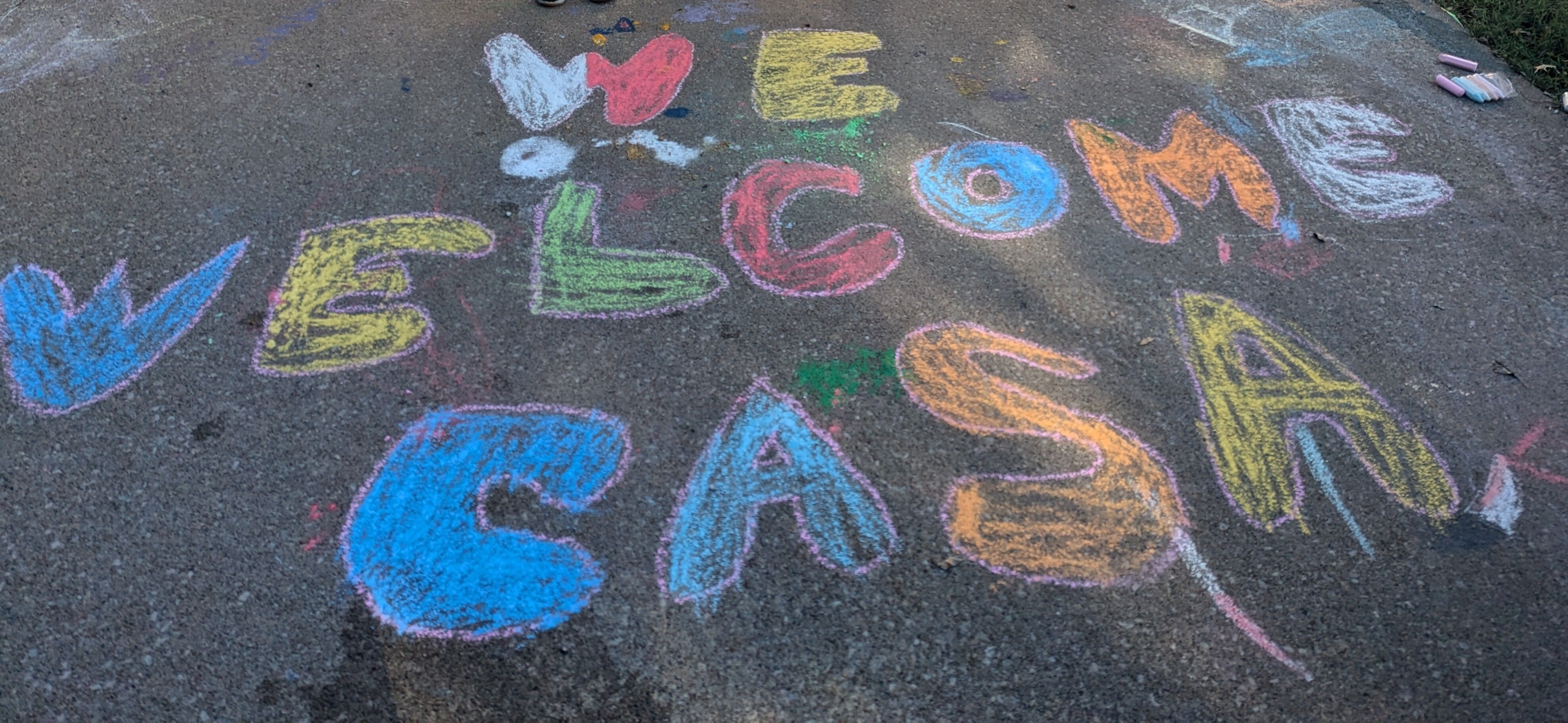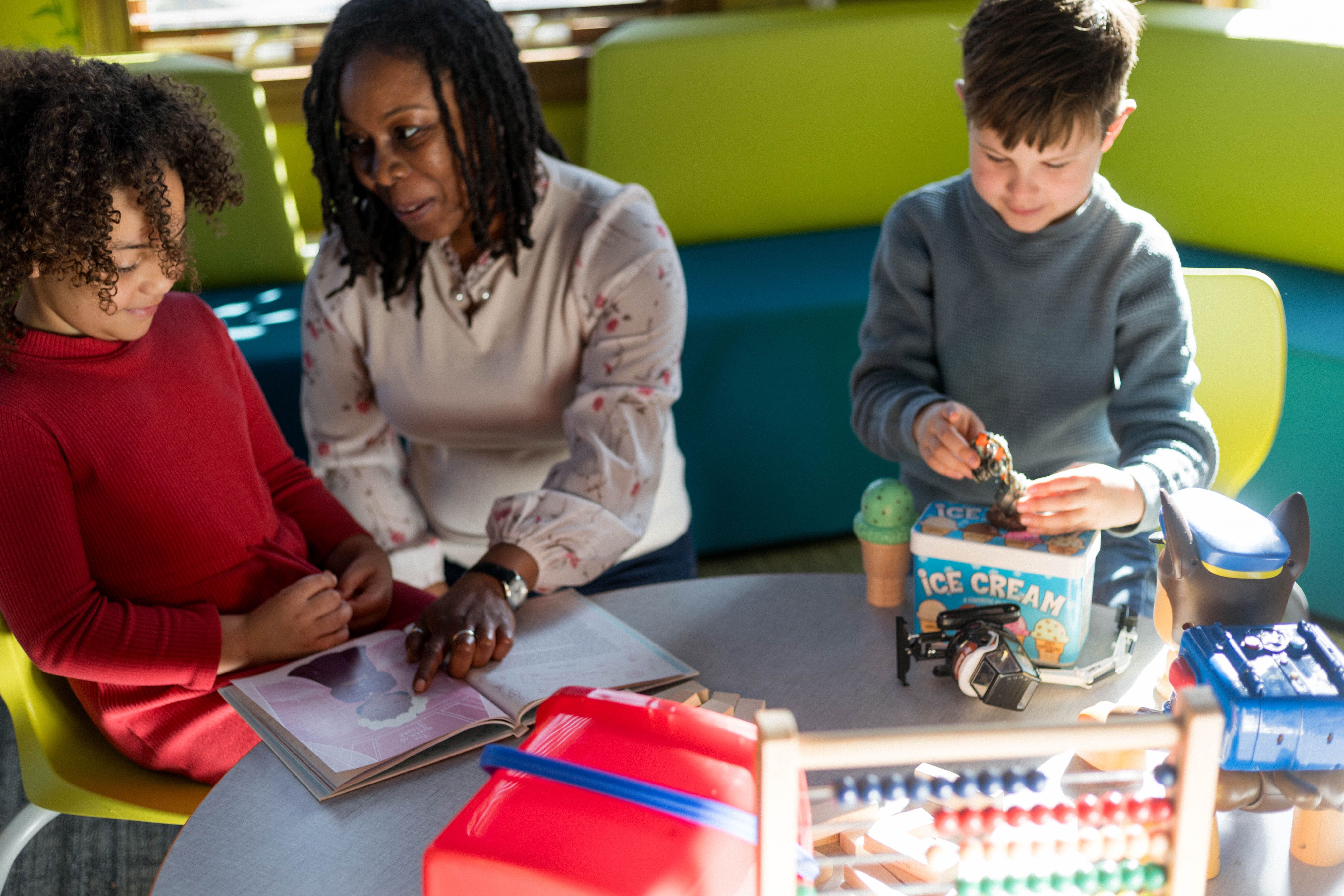Ready to Become a Volunteer?
When you are ready to become a CASA Volunteer Advocate, complete the online application below and schedule an interview with our Manager of Volunteer Training, Lisa Martin. (Note: The booking calendar only shows interview spots one week at a time. Click on the week you want to see availability.)
Volunteer Disclaimer
Jackson County CASA recognizes, respects, promotes, and celebrates the value of cultural diversity and will ensure that your ethnic or cultural customs, practices, and beliefs, sexual orientation, gender, gender identity, gender expression, disability, and/or community differences will be respected by agency staff.
- What Is a CASA Volunteer?
- How Will I Benefit From Becoming a CASA Volunteer?
- What is the CASA Volunteer’s Role?
- Why Are More CASAs Needed?
- How Does CASA Make a Difference?
- What Are the Requirements for Becoming a CASA Volunteer?
- How Does a CASA Volunteer Research a Case?
- How Does the Role of a CASA Volunteer Differ From an Attorney?
- Is There a “Typical” CASA Volunteer?
- How Many Cases Does a CASA Volunteer Work on at One Time?
- How Much Time Does It Require?
- What Kind of Support Will I Receive?
- I Don’t Have Time to Devote as a CASA. What Else Can I do?
-
What Is a CASA Volunteer?
A Court Appointed Special Advocate (CASA) Volunteer is a trained community member appointed by a judge to represent the best interests of children who have experienced abuse and neglect. CASA Volunteers are not mentors or sponsors. Our CASAs are mature, responsible adults who are easy to talk to and who care deeply about advocating for the children of Jackson County who have experienced abuse and neglect.
-
How Will I Benefit From Becoming a CASA Volunteer?
As a CASA, you are a well-respected and important member of the advocacy team for a child. Our intensive training program and ongoing support will help you expand your interpersonal skills, work with individuals from different backgrounds and cultures, and network with volunteers, professionals from other agencies and the court, and CASA staff.
You’ll also increase your leadership ability, your sense of community, and your knowledge in areas like domestic violence, child abuse and neglect, and substance abuse. Our CASAs feel proud they’re helping to break the deadly cycle of abuse in the community.
-
What is the CASA Volunteer’s Role?
The CASA Volunteer’s ultimate goal is securing safety and permanency for the child as quickly as possible. A CASA Volunteer provides the judge with carefully researched information about the child to help the court make a sound decision about that child’s future. The CASA Volunteer helps determine if it’s in a child’s best interest to be returned to the parents or guardians, be placed in foster care, be placed with relatives, or be freed for permanent adoption.
Responsibilities include reviewing records, researching the child’s situation, regularly visiting the child wherever he/she is living, attending meetings concerning the child and family, writing recommendations to the judge before each court meeting, and working with the CASA staff attorney who represents the child in all legal proceedings, and reporting to the CASA staff case supervisor.
-
Why Are More CASAs Needed?
Each year, nearly 2,400 children enter the Jackson County Family Court system due to parental abuse or neglect. In 2023, CASA served just over half of them. Our goal is to provide CASA advocacy for every child in the Jackson County Family Court system by the end of 2025.
-
How Does CASA Make a Difference?
Often a CASA is the only constant in the life of a child who may be separated from his or her family and shuffled between Family Court and foster homes. A CASA offers children comfort and support and can free them from the cycle of abuse.
Children with CASA Volunteers are more likely to receive therapy, health care, and education. Judges have observed that CASA children have better chances of being placed in permanent homes than non-CASA children and children with CASA Volunteers are placed in safe, permanent homes on average six months faster than children facing the court alone.
-
What Are the Requirements for Becoming a CASA Volunteer?
Our CASA Volunteers must be at least 21 years of age and undergo criminal and Child Protective Services background checks. Applicants are required to complete a volunteer application, attend a pre-training orientation and participate in volunteer training.
-
How Does a CASA Volunteer Research a Case?
To prepare a recommendation, a CASA Volunteer talks with the child, parents, family members, social workers, school officials, health providers and others who are knowledgeable about the child’s history. The CASA Volunteer also reviews all of the child’s records – school, medical and caseworker reports, and more.
-
How Does the Role of a CASA Volunteer Differ From an Attorney?
Attorneys represent legal interests. CASAs make recommendations about what would be best for the child. CASAs aren’t responsible for filing legal paperwork with the court, but they do provide crucial information that assists the court in decision-making. The attorney is the expert on the law; the CASA gathers and shares important information on the child.
-
Is There a “Typical” CASA Volunteer?
We’re proud to have a wealth of CASA Volunteers from different personal, educational, and cultural backgrounds. More than half of our CASAs are employed in regular, full-time jobs. All of them share the same passion and determination to ensure that a child who has experienced abuse or neglect will grow up in a safe, permanent home.
-
How Many Cases Does a CASA Volunteer Work on at One Time?
Typically, CASAs work on one case at a time, allowing them to focus on one sibling group’s particular needs.
-
How Much Time Does It Require?
A CASA Volunteer usually spends 4 to 10 hours each month on his or her case. There may be several court hearings and meetings to attend during the daytime hours, but phone calls and visits can be arranged on evenings and weekends.
-
What Kind of Support Will I Receive?
Each CASA Volunteer undergoes 30 hours of pre-service training: 18 hours of instruction plus 12 hours of homework. As a CASA, you are part of a three-member advocacy team consisting of you, a CASA Advocate Supervisor, and a CASA Guardian ad Litem who will be present in court hearings too.
-
I Don’t Have Time to Devote as a CASA. What Else Can I do?
There are plenty of volunteer opportunities at Jackson County CASA. We have many donation drives and events throughout the year that require volunteer support. For more information, call Lisa Martin at 816-984-8230.
Still have questions about becoming a CASA Volunteer? Sign up for an online info session through the calendar link below.















